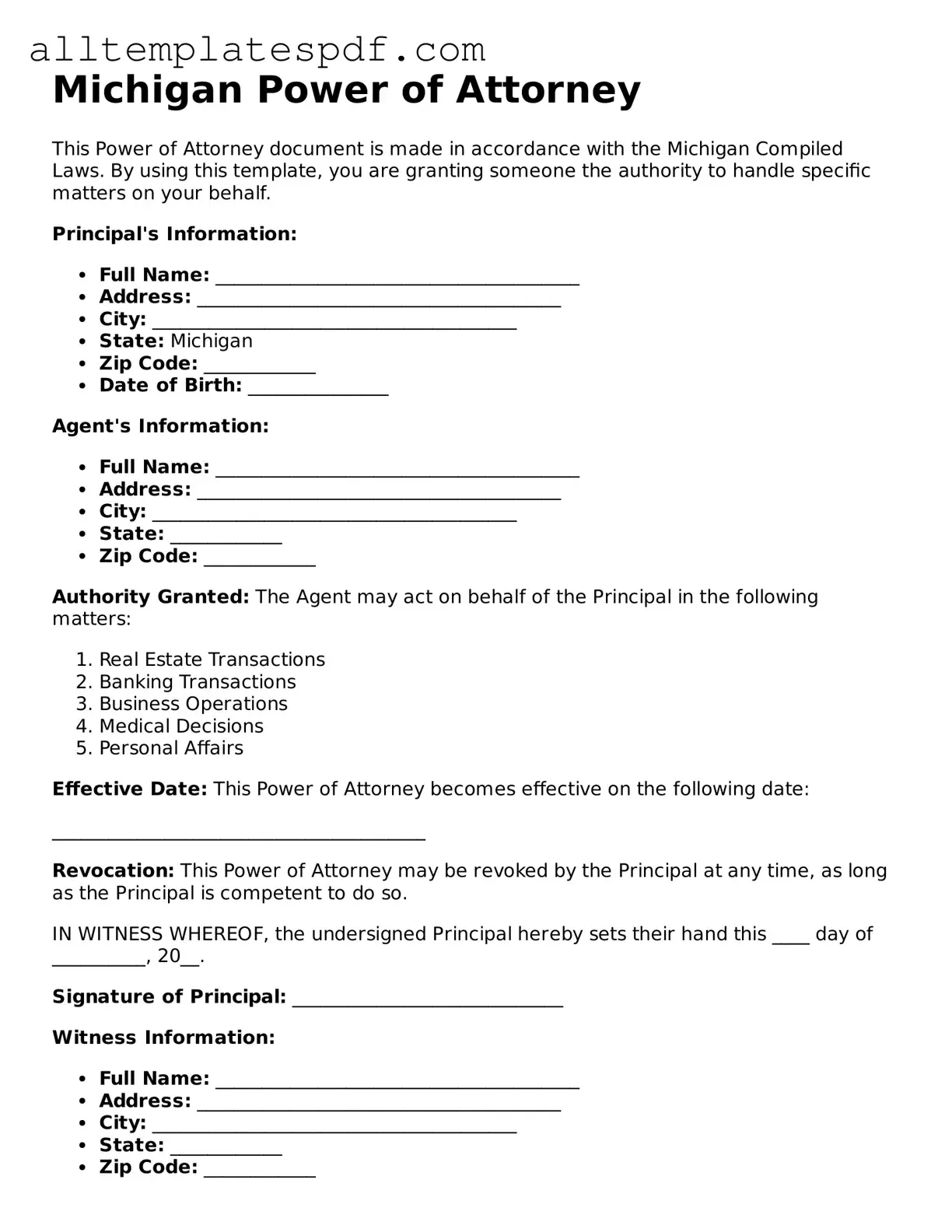Blank Power of Attorney Template for the State of Michigan
The Michigan Power of Attorney form is a legal document that allows you to appoint someone to make decisions on your behalf when you are unable to do so. This form can cover financial matters, healthcare decisions, or both, depending on your needs. To ensure your wishes are respected, consider filling out the form by clicking the button below.
Open Editor

Blank Power of Attorney Template for the State of Michigan
Open Editor
Fast and easy form completion
Complete Power of Attorney digitally — fast and easy.
Open Editor
or
↓ Power of Attorney PDF Form
